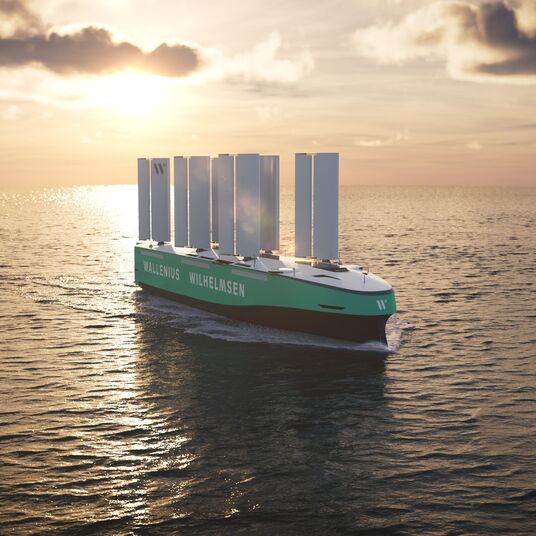Fueling change: Wallenius Wilhelmsen and ExxonMobil team up for sustainable biofuel supply deal
Wallenius Wilhelmsen has reached a milestone in its commitment to sustainability through its first biofuel contract with ExxonMobil. This partnership marks an important step towards reducing emissions and promoting eco-friendly practices.

The recently signed contract entails the delivery of sustainable biofuel within the second half of this year, aligning with Wallenius Wilhelmsen's strategic goal of achieving a net-zero emissions integrated supply chain service by 2027. By leveraging sustainable biofuel, the company aims to actively contribute to a greener future for the shipping industry.
“The biofuel from ExxonMobil contains 30 percent biofuel and 70 percent conventional fuels. It is the best option we have available for decarbonization of the fleet today,” says Jon Tarjei Kråkenes, head of the Orcelle Accelerator at Wallenius Wilhelmsen.
The first biofuel delivery is scheduled for July, marking the beginning of a transformative journey toward decarbonization.
Kråkenes emphasizes the significance of this biofuel contract: "This agreement underscores our dedication to reducing emissions and promoting environmentally friendly practices within the shipping industry. While the contracted volume represents a relatively small portion compared to our annual fuel consumption, it serves as a crucial step in our broader sustainability efforts and sets the stage for further progress."
The collaboration between Wallenius Wilhelmsen and ExxonMobil highlights the shipping industry's commitment to adopting greener solutions. It symbolizes a collective effort to address the environmental challenges posed by the sector and to pave the way for a more sustainable future.
Aly Abdelmotaal, regional marine marketing manager at ExxonMobil says: “ExxonMobil is proud to be working with Wallenius Wilhelmsen to help them meet their sustainability ambitions. We remain focused on advancing lower greenhouse gases (GHG) emission solutions, including biofuels, to help the marine industry meet its GHG emission objectives.”
As the demand for eco-friendly alternatives continues to grow, partnerships like this one demonstrate the industry's dedication to fueling change. Through such initiatives, the shipping industry is reshaping its practices to reduce its carbon footprint and drive positive environmental impact.


